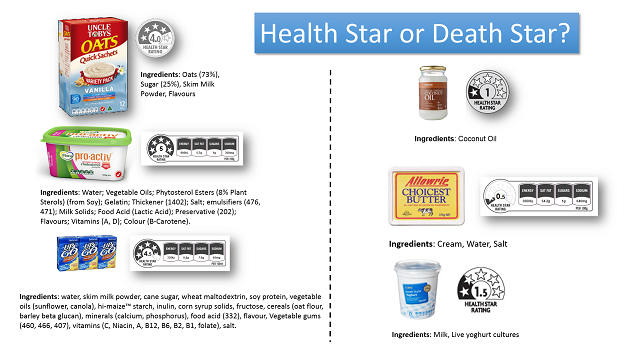
It’s already been quite a year for the Australian Sugar Industry. Just 6 sleeps into the New Year they were taking sustained incoming fire from the AMA (Australian Medical Association). Suddenly the doctors were demanding a soft drink tax. It was something the AMA had sort-of mentioned before but now they were going postal on the issue.
Wiping the holiday sleep from their eyes, the pro-sugar lobby struggled to respond. But eventually they managed to inspire a National Party Minister to regurgitate the soft drink industry response. Then they then lined up a climate change denial think tank to try and jazz it up with ‘science.’
And last but certainly least, yesterday they wheeled out an ever-reliable University of Sugar (sorry, Sydney) dietitian who sagely warned us that if soft drinks were taxed we’d all hit the booze instead. Yes, lock up the vodka at Macca’s, Coke now cost 2c more.
It’s a familiar merry-go-round but in every other civilized place in the world it eventually ends with the introduction of a soft drink tax. Since 2014, 28 countries and 7 US cities have implemented sugar taxes. And there are very good reasons for that. The science on the health destroying effects of sugar is unequivocal. The costs of managing that harm are crippling. And unlike most tax increases, sugar taxes are popular. A January 2018 poll tells us that 53 per cent of Australians want it.
The real question then is not whether we will have a soft drink tax but when. Most importantly, when the inevitable happens, what will we do with the money it raises.
The AMA has clearly put its stake in the ground to be the first in the queue for handouts. But their record on sugar has hardly been stellar. No, they haven’t actively promoted sugar consumption like dietitians or the Heart Foundation, but they have sat on their hands for at least a decade and happily refused to use their considerable influence to advocate against sugar.
Even now, playing catchup, their support of the Health Star System (which labels sugar loaded Milo a health food and unflavoured Greek Yoghurt a health hazard), suggests they remain a little confused on potential solutions. The AMAs new found conscience should therefore be regarded with suspicion and their plans for the dough scrutinized carefully.
A soft drink tax is unlikely to have any measurable health effect on its own. Taxing one source of sugar will certainly reduce consumption from that source but people simply find a cheaper, or just different, supply (iced coffee anyone?).
But the siren call of cold hard cash will apparently do what I and many like me have failed to do for a decade. It will remove the single greatest obstacle to real progress, the nutrition rent-seekers.
These organisations have been perfectly happy to ignore the science for decades. They have been happy to dictate health policy that lets ever increasing numbers of us suffer. And they have been happy to do it because of ego or profit or consensus or stubbornness or all of the above.
If, however the tax funds consistent government public health campaigns aimed at making sugar consumption slightly less desirable than persistent public flatulence, then it will have a measurable and significant effect. The outcome can’t be to hand money to the organisations that got us in this mess in the first place and hope for the best. Because if there is one thing we should know about sugar, our health comes a very long way second to the self-interest of the people with their hand in the cookie jar.

















These star ratings need to be removed because they are just confusing consumers and promoting the same message -low fat (= high sugar). My full-fat cream cheese that I have for breakfast gets a measly 1 star rating, yet since I gave up eating sugar in 2012, switched to proper butter (no seed oils), full fat milk (skim is disgusting anyway) my weight has remained the same, my cholesterol has improved, I no longer have a fatty liver (caused by sugar, not alcohol) and I don’t miss sugar at all. Look at the number of added chemicals in these things on the left people – never mind the sugar. Less is more when it comes to food. Keep up the shouting David – people are starting to listen. Sweet Poison was my turning point.
It smacks of hypocrisy that when the Alco-pops tax (and tobacco tax before it) was brought in it was like “how high can we go?” but when a sugar tax is mentioned its more like “this will hit consumers, especially those that can least afford it, too hard”. Isn’t that part of the point? If you are willing to still buy the product laden with sugar then you pay the price, if not, don’t buy it. Simples. The ones that can least afford it shouldn’t be buying it with or without a tax on it. Either we raise money as a result of the problem to help treat the problem or the problem goes away by itself because people aren’t buying the sugar water any more. Win win. David, I am interested in knowing, since sugar (fructose) and alcohol are basically treated the same way by the liver, even if it affects the brain differently, if there is an “alcohol equivalent” for sugar. I.e. “The sugar in one can of Coke is the same load on (or causes the same damage to) the liver as 3 standard drinks of alcohol etc”. I.e. focusing on the damage not the calories.
Roughly – 1 standard drink (10g ethanol) is equivalent to 5 teaspoons of sugar (10g fructose) – so that would mean a can of coke (11 teaspoons) is equivalent to 2 standard drinks (and change).